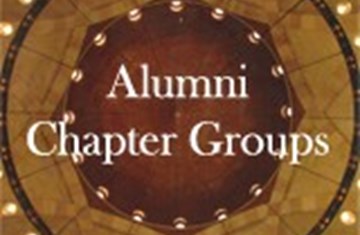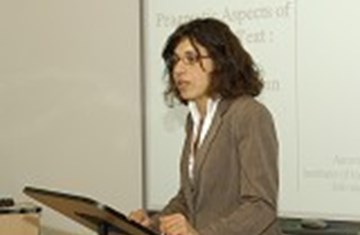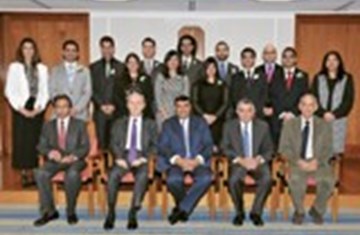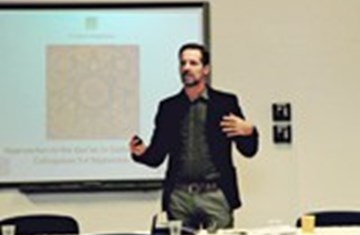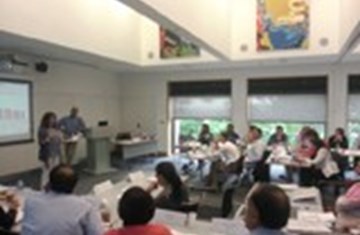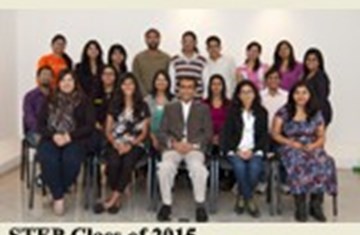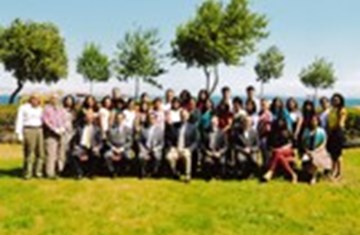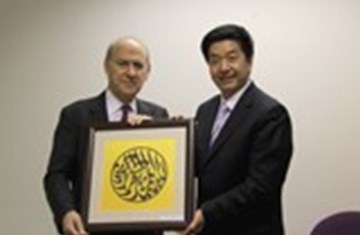Director’s Address: Video
Professor Azim Nanji
The 25th Anniversary Graduation Ceremony
Le Meridien Grosvenor House Hotel, London, October 19, 2003
Your Highness,
Colleagues,
Students,
Alumni,
Distinguished Guests,
We’re gathered here today to celebrate our 25th anniversary, to offer congratulations and to recognise our graduates, our alumni, their families, the Faculty, the Staff. Also, this occasion affords us the opportunity to thank our Board of Governors, past and present, and our many friends, supporters and colleagues from all over of the world.
Twenty-five years, in the scheme of things and in the life of an institution is a very, very short time. Particularly, when in the United Kingdom, there are universities like Cambridge and Oxford that can boast genealogies 800 years. The Institute may be 25 years, but the tradition it grows from is a thousand years old.
Your Highness, a thousand years ago, your illustrious ancestor Imam Mu‘izz, established in Cairo the university of al-Azhar. Later, in Alamut, we had a very distinguished centre of learning. All these institutions represent a spirit that we try to carry on in the Institute. And just as those institutions have become part of our historical memory, so we hope that this Institute, at this time, in the context of all the institutions of education that you are creating will represent another historical moment in our history.
Your Highness, your vision and generosity led to the establishment of this Institute in 1977. You not only founded the Institute, but you have given generously of your time and resources to foster its vision and learning. Today, scholars and students from all over the world, and I mean this in a literal sense - from Afghanistan to Zanzibar - have been its beneficiaries. Scholars of the future, we hope, will write about the globalisation of higher education that took place after a thousand years in the jamat during this period of time.
Though relatively young, the Institute’s character and mission have become truly international in scope. One of our major goals has been to develop an intellectually well founded and coherent model of Islamic education for the future. To this end, as early as in 1980 we embarked on a graduate program in Islamic studies and Education in collaboration with McGill University in Canada and the University of London. The present Graduate Programme in Islamic Studies and Humanities, for which the students were first recruited in 1995 departs from conventional programs in several respects: avoiding old academic divisions of subject matter into theology, law, mysticism and the like, it treats materials of Islam in the common framework of an intellectual, social and cultural history. Moreover, the Programme does not consider Islam in places other than the Middle East as being somehow peripheral or marginal to its historical profile. Another endeavour of this Programme is to bring into unified perspective the disciplines related to the study of historical Islam and the contemporary Muslim world.
Our hope is that we have created graduates equipped with the intellectual tools and moral commitment to address the issues of their societies and indeed the world at large. The spirit of the past is very much alive at the Institute and our hope is that these students will carry that intellectual openness, that commitment to inquiry and the compassion to serve their fellow beings wherever they go. We are deeply honoured that you have joined us today for this occasion and privileged that you have graciously agreed to address us on this occasion.

